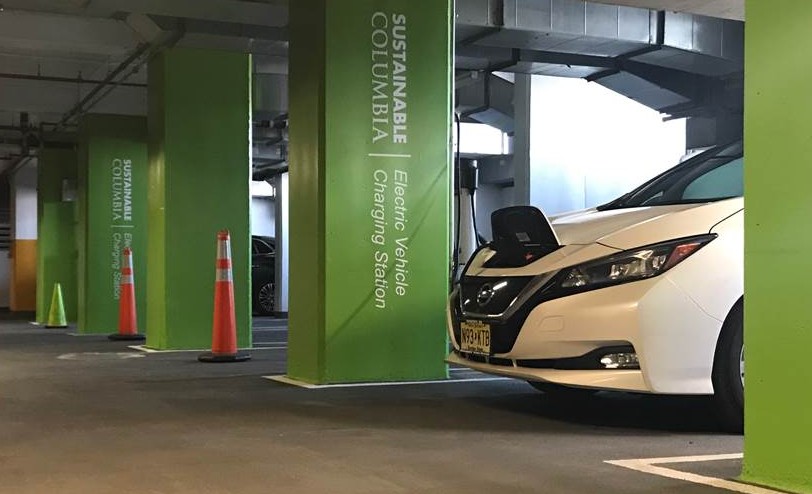A firm date by which the policy will take effect will be announced as the availability and affordability of zero emission vehicles, such as battery electric vehicles (EV), evolves in the coming years. The new policy will encompass all of Columbia’s commuter and residential parking areas across all New York State campuses. Hybrid vehicles that use gas or diesel will also be phased out.
Plan 2030 sets aggressive GHG reduction targets grounded in the latest climate science. Achieving these targets will require significant individual behavior change from Columbia affiliates, making this decision regarding personal vehicle use a necessary step in the right direction. These actions will be put into place to support New York State’s GHG goal of carbon neutrality by 2050. The transportation sector was responsible for approximately 28% of New York’s total emissions in 2019, and the adoption of ZEVs is a key part in New York State’s newly drafted Scoping Plan that describes how New York will meet its GHG reduction goals.
About 10% of Columbia’s total emissions come from commuter travel. University survey data collected in 2019 showed that about 13% of Columbia employees commute to campus by car. These commuters are responsible for close to 38% of the university’s total commute emissions. The remainder of commute emissions comes from public transit, much of which will be powered using green energy sources in the near future per New York State plans.
This announcement serves two purposes: First, to spur Columbia’s driving commuters to plan now for making the switch to a ZEV. Second, to support global efforts to set dates that catalyze sustainable behavior change. In similar fashion, New York State has banned the sale of fossil fuel vehicles starting in 2035, and General Motors announced that they will stop manufacturing ICE vehicles by 2035. Columbia University is at the forefront of this movement and we hope this groundbreaking step will influence peer institutions and other parking area operators to do the same.
According to university survey data, 6% of Columbia employees who have a driving commute to campus have already made the switch to an EV. In addition to looking to its affiliates to change commute behavior, Columbia has already made investments to aid the change. The university has installed more than 30 EV charging ports that are available for use in university parking spaces.
Columbia has recently completed a study that outlines future EV adoption, which is being used to plan for university-wide incremental EV station expansion. Visit the Columbia Transportation website for more resources, including tools to make purchasing decisions and a list of current incentives for purchasing an EV.
NYC’s goal is to create a network of 40,000 public Level 2 chargers citywide and 6,000 Direct Current Fast Chargers by 2030. New York State recently announced an electric vehicle infrastructure program known as "EV Make-Ready," which will deploy more than 50,000 new public and commercial Level 2 charging ports across the state by 2025 — increasing the number of non-residential charging ports in New York State more than tenfold within four years.
Thank you for your cooperation as we strive to become net zero by 2050 or sooner and foster a culture of sustainability at Columbia.

